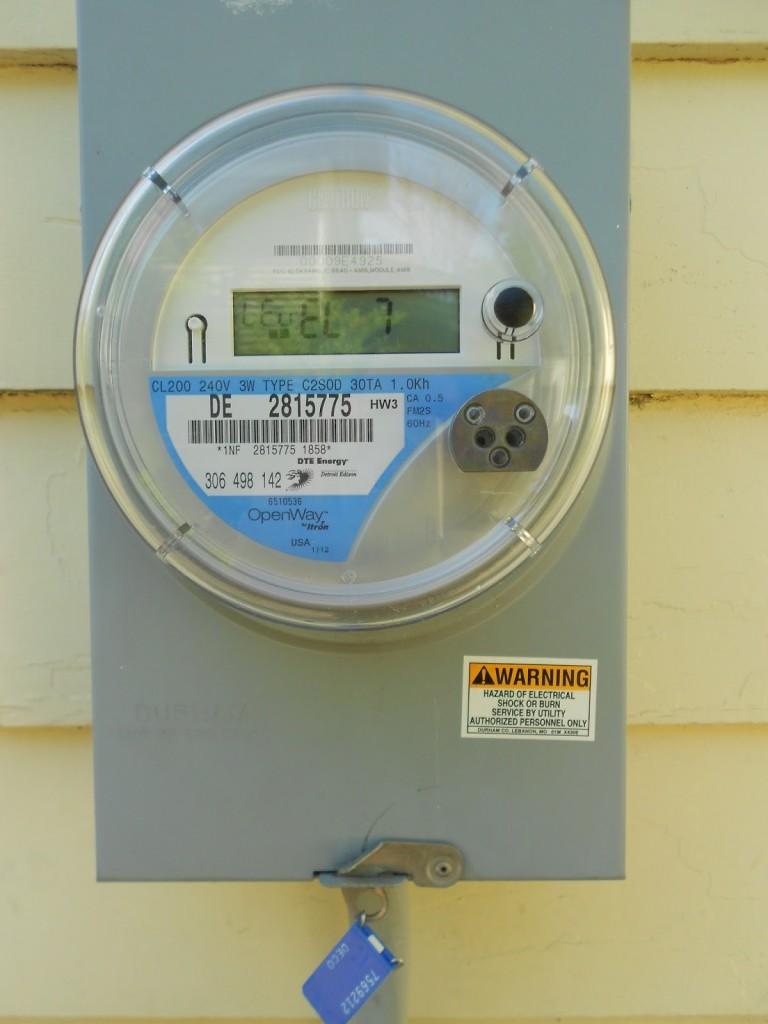In January of 2012, Ann Arbor-area homeowners serviced by Detroit Edison Energy received letters announcing a new piece of technology to be installed on their homes: the smart meter. John Hieftje, the mayor of Ann Arbor, fully endorsed the meters as a technological step forward. Through the installation of their new meters, DTE became able to collect energy-usage data wirelessly, eliminating the need for meter-reader employees.
The meters work in a hierarchical system–each meter collects data from the home it is attached to, and twice a day this data is transmitted during a wireless activity period of 15 minutes. Instead of having each meter transmit separately, they communicate with one another, and the “Level One” meter collects all the information before sending it off to a larger collector somewhere nearby. The wireless information is bounced back and forth between receptors until DTE picks it up via a final receiver.
Smart meters aren’t just being seen in Michigan or in DTE-serviced homes; Consumer’s Energy, the energy company for the western half of the state, is also using similar technology, as are other companies and Pacific Gas and Electric in California. And, nation-wide, a resounding outcry has come from homeowners fighting back against this invasion of their privacy and their homes. The meters constantly collect information and communicate with one another, and their wireless interactions cannot be controlled by the homeowners, causing many to label them monitoring devices. The information the meters transmit is encoded, but can still be accessed by anyone with a proper receiving device, making it easy for third parties unrelated to DTE to learn about the schedules of homeowners, and to possibly learn at what times a house might be empty, or when children, pets, or other members of a family are left alone in a home.
Since the installation of the meters, homeowners throughout the Washtenaw County area have pushed back against DTE’s enforcement of the installation. Even Michigan State Attorney General Bill Schuette has spoken out against the meters. A bill sponsored by Mike McMillin of Rochester Hills is currently moving through the Michigan legislature, and would reduce the costs of an “opt-out” program recently approved by the Michigan Public Service Commission. Utility customers have been calling for an opt-out program since the initial installation of the meters. The currently proposed program would stop wireless transmissions, but homeowners would be required to pay activation and monthly fees. Similar programs have been successfully put into motion in California and Maine, among other states. Such programs are still under attack by citizens who oppose the fees and want analog meters, not digital ones, for their homes.

















